Kill the Messenger (16 page)
Read Kill the Messenger Online
Authors: Nick Schou

Kurt and Gary (holding dog), 6 years old
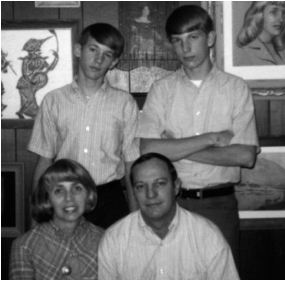
Gary with mother Anita, father Bill, and Kurt, Thanksgiving 1970
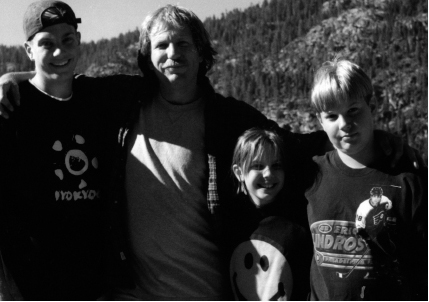
Gary with kids, 2000

Gary and Sue in Mexico, summer 2001
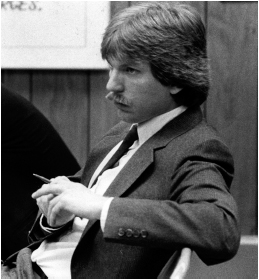
Gary,
Cleveland Plain Dealer
, mid-80s
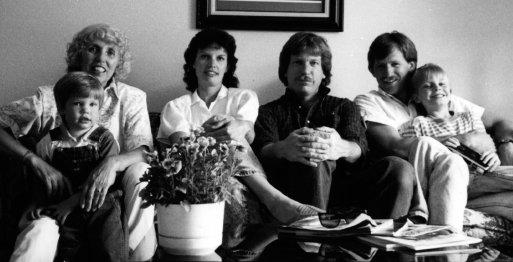
Family photo: Anita with Eric, Sue, Gary, Kurt with Ian, 1990
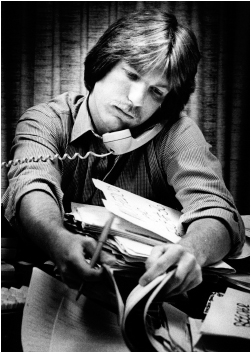
Gary,
Kentucky Post
, 1980
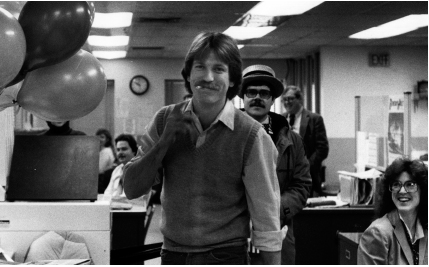
Gary,
Kentucky Post
, Feb 1983
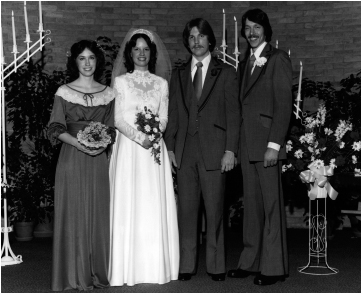
Wedding picture, February 10, 1979, maid of honor Kellie Kilrain, best man Greg Wolf
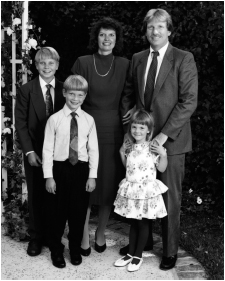
Gary, Sue, Ian, Eric, and Christine at Kurt and Diana's wedding, 1995
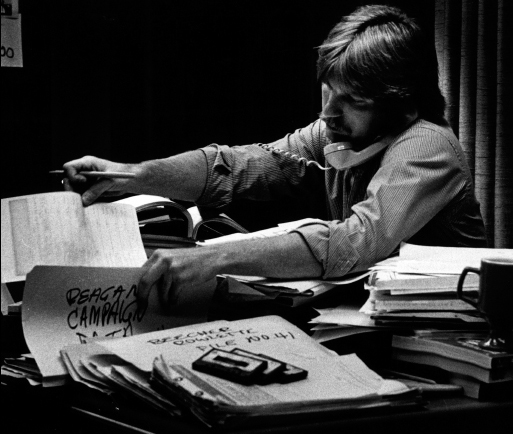
Gary, Kentucky Post
, 1980
IT WAS ALREADY
mid-afternoon when Jerry Ceppos arrived at the headquarters of the
San Jose Mercury News
on Sunday, October 3, 1996. As he did every day, Ceppos examined the incoming wire reports to see what stories the nation's big newspapers would break the following morning. A few minutes later, Ceppos calmly strode out of his office, clutching an advance copy of the
Washington Post
's front-page run list.
“Jerry came over to me and told me they were going to do a knockdown on Webb's story,” says a former
Mercury News
staffer who was sitting at his desk nearby. “ âWhat are you going to do about it,' I asked, and he said, âIf you have any great ideas, let me know.' ”
At that moment, Webb was sitting inside an NBC green
room at Rockefeller Center in Manhattan, preparing for a guest appearance on
The Montel Williams Show
. Ceppos called Webb at the studio, and told him that the
Post
was going to run a story the next morning that was highly critical of “Dark Alliance.” Webb asked what errors the
Post
had uncovered in his story. “They don't say the facts are wrong,” Webb later quoted Ceppos. “They just don't agree with our conclusions.” When Webb asked what evidence the
Post
had cited in reaching that particular conclusion, Ceppos responded, “A lot of unnamed sources, mainly. It's really a strange piece.”
Dawn Garcia says the
Post
article took her completely by surprise. “What I had hoped would happen after âDark Alliance'was published is that other media would pick this up and run with it and continue the work we had started,” she says. Both she and Webb thought that, once they jumped on the story, the nation's big newspapers, which had far greater resources to pursue the story, would inevitably advance it. “We had no inkling that
we
would become the story,” she says.
Written by Walter Pincus and Roberto Suro, with the help of Douglas Farah, a correspondent in Nicaragua, the story, “The CIA and Crack: Evidence is Lacking of Alleged Plot,” cited numerous and mostly unnamed sources who claimed that Webb was wrong. “A
Washington Post
investigation into Ross, Blandon, Meneses, and the U.S. cocaine market in the 1980s found that the available information does not support the conclusion that the CIA-backed contrasâor Nicaraguans in generalâplayed a major role in the emergence of crack as a narcotic in widespread use across the United States,” the
Post
reported.
According to Pincus and Suro, while Nicaraguans “took part” in drug trafficking during the 1980s, “most of the cocaine trade” involved Colombian and Mexican smugglers, and domestic dealers whose ranks included Jamaicans, Dominicans, Haitians, and “Americans of varying backgrounds.” The statement ignored the fact that while “Dark Alliance” had mostly focused on two NicaraguansâBlandon and Menesesâthe pair's drug ring included Colombian suppliers, Nicaraguan middlemen, and African-American crack dealersâeven a white ex-Orange County cop.
Citing unnamed “law enforcement officials,” Pincus and Suro claimed that Blandon had sent only $30,000 to $60,000 in drug profits to the contras, and had only moved five tons of cocaine during his decade-long career. At one point in his testimony, Blandon had stated that he stopped funding the contras when President Reagan had been elected. If so, that would mean Blandon had started keeping his drug profits either before he and Meneses met CIA asset Enrique Bermudez in 1982 or 1983âor only about a year after that meeting, when Reagan won re-election. Either way, the
Post
concluded, Blandon hadn't been sending coke money to the contras as long as Webb had alleged in “Dark Alliance.”